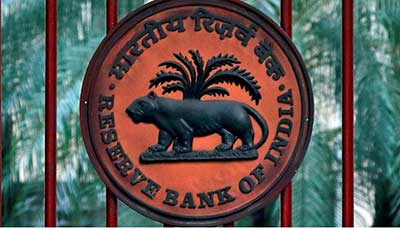Date: 09/01/2023
Relevance: GS-3: Indian Economy and issues relating to planning, mobilization, of resources, growth, development and employment.
Key Phrases: RBI, NBFCS, Audit, Regulation, Balance Sheets, Licenses, Financial System, Systemic Risks, Loan Exposures, Statutory Auditors, Compliance Audits, Grievance Redressal.
Context:
- The Reserve Bank of India has decided to conduct compliance audits on the 9,500-odd registered non-banking finance companies (NBFCs).
- It is being considered a necessary move to ensure water-tight regulation of the sector.
Need For the Audit:
- The immediate provocation for this audit is due to rising customer complaints about digital lending apps openly flouting RBI norms.
- RBI has ordered that digital apps cannot undertake any lending on their own balance sheets and must have either a bank or a registered NBFC at their back-end to underwrite risk.
- But investigations have shown that 600 of the 1,100 lending apps are illegal, with many digital players piggybacking on licenses of dormant NBFCs.
- Compliance audits will help ensure that registered NBFCs are adhering to the specific lines of business that they were authorised for.
- The IL&FS and DHFL failures exposed the high degree of inter-connectedness between NBFCs, banks and the rest of the financial system, RBI has been trying to reduce systemic risks by raising the regulatory bar on large NBFCs.
- In October 2021, it introduced a scale-based regulatory structure, where all NBFCs, including base-layer ones, are expected to transition to 90-day NPA recognition, granular disclosures on loan exposures and others.
- RBI will also like to check if the new rules are being complied with. While RBI has so far been cancelling licences of individual NBFCs for violations, an audit can help rid the sector of bad actors and shell companies, in one go.
What is a Non-Banking Financial Company (NBFC)?
- A Non-Banking Financial Company (NBFC) is a company
registered under the Companies Act, 1956 engaged in the business of:
- Loans and advances.
- Acquisition of shares/stocks/bonds/debentures/securities issued by Government or local authority or other marketable securities of a like nature,
- Leasing, hire-purchase, insurance business, chit business but does not include any institution whose principal business is that of agriculture activity, industrial activity, purchase or sale of any goods (other than securities) or providing any services and sale/purchase/construction of immovable property.
- A non-banking institution which is a company and has principal business of receiving deposits under any scheme or arrangement in one lump sum or in installments by way of contributions or in any other manner, is also a non-banking financial company (Residuary non-banking company).
NBFCs are doing functions similar to banks. What is difference between banks & NBFCs?
- NBFCs lend and make investments and hence their activities
are akin to that of banks, however there are a few differences as given
below:
- NBFC cannot accept demand deposits.
- NBFCs do not form part of the payment and settlement system and cannot issue cheques drawn on itself.
- Deposit insurance facility of Deposit Insurance and Credit Guarantee Corporation is not available to depositors of NBFCs, unlike in case of banks.
- Digital Lending: A remote and automated lending process, largely by use of seamless digital technologies for customer acquisition, credit assessment, loan approval, disbursement, recovery, and associated customer service.
- Digital Lending Apps/Platforms (DLAs): Mobile and web-based applications with user interfaces that facilitate digital lending services. DLAs will include apps of the Regulated Entities (REs) as well as those operated by Lending Service Providers (LSPs) engaged by REs for extending any credit facilitation services in conformity with extant outsourcing guidelines issued by the Reserve Bank.
Challenges in Implementation:
- Lack of experienced audit firms to take up assignment. India is home to just about 2,000-odd audit firms, but RBI’s eligibility criteria may reduce it further.
- RBI has specified that statutory auditors for NBFCs must be rotated every three years, should not be reappointed for six years and must not have any other commercial relationship with the NBFC.
- Relaxing these norms for compliance audits may compromise the quality of the exercise.
- Small-sized NBFCs may be reluctant to shell out the audit fees demanded by good quality firms for what is a mandatory exercise.
- Checking whether non-bank entities are operational at their registered premises may be easy but scrutinising their books to assess net worth, loan exposures and recovery practices may require a deeper and longer engagement.
Conclusion:
- RBI can supplement this audit exercise with efforts to get direct feedback from stakeholders on the functioning of NBFCs.
- Opening up a direct grievance redressal window at its own site where NBFC customers can escalate their complaints to the regulator.
- Also a whistle-blower mechanisms for reporting on doubtful NBFC lending practices, may give RBI more leads on rogue entities.
Source: Business line
Mains Question:
Q. IL&FS and DHFL failures exposed the high degree of inter-connectedness between NBFCs, banks and the rest of the financial system. What are the risks associated with it? Also suggest measures to reduce the risks. (150 words).






















